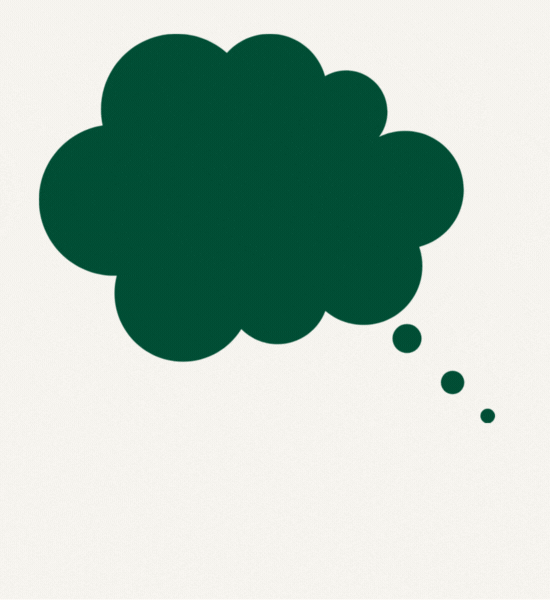
Curious about medical cannabis?
In Canada, the medical use of cannabis is legal if specific medical providers give guidance and authorization. However, understanding the differences between medical and non-medical (recreational) cannabis can still be tricky.
Whether you’re navigating health concerns or simply exploring your options, we’re here to provide you with the facts so you can make informed decisions. Let’s break it down below.
Medical vs. non-medical cannabis
Whether it is for medical or recreational purposes, the cannabis is the same. The important difference is the why and what you expect to get from your cannabis use.
What’s different about medical cannabis?
First off, not every cannabis producer can grow medical cannabis. health Canada grants licensed producers with a special license for medical production. Medical production includes stricter controls than non-medical cannabis production.
Medically licensed producers offer additional benefits to consumers than a recreational retail location. These extras often include:
- Ability for consumers to purchase their cannabis directly from a licensed producer
- Tailored strains and potencies designed for specific health conditions.
- Products like oils, tinctures, and topicals not commonly found in recreational stores.
- Guidance from healthcare providers who understand your unique medical history.
- Medical patients may be eligible for insurance coverage, a tax write-off or compassionate pricing for their medicinal cannabis
The Cannabis Act regulates cannabis across Canada, including information for medical and non-medical use.
Medical cannabis:
- It needs to be authorized for treatment by a medical provider, like a doctor or nurse practitioner.
- And, depending on their authorized amount, patients may be approved to carry more than 30 grams.
- If authorized individuals choose to buy their product from a retail location, they will be capped at a maximum 30 grams no matter what amount they are authorized to use. If an individual requires more than 30 grams in a single purchase, they have to purchase from their chosen licensed producer.
- Patients can also access products directly from licensed producers (LPs). Visit the product education section below for further information.
Non-medical (recreational cannabis):
- Not licensed for sale as a medical product because production did not occur in a facility approved for medical production.
- Limited to a maximum of 30 grams per purchase.
- Purchased through a licensed retailer.
- Product availability can vary significantly.
Medical cannabis is used to treat specific health issues as part of a treatment plan guided by a healthcare professional. In Canada, it is not considered a first-line treatment because it is not an approved therapeutic product. This means that medical professionals are advised to explore other treatments first. More research is needed to fully understand the benefits vs. risks of cannabis compared to traditional medications. If you have been authorized to use medical cannabis, it's important to be informed about the scientific evidence.
Today, there are only a few medical uses for cannabis that research supports, and they include:
- treatment of nausea and vomiting caused by chemotherapy
- relief for pain caused by nerve damage
- appetite stimulation
Other uses of medical cannabis still being studied include:
- Multiple Sclerosis
- Epilepsy (some types)
- Cancer
- Anti-inflammatory diseases
- Mental health issues
- Neurogenerative disorders
Recreational cannabis is often used in social settings for unwinding, increasing creativity, enhancing the senses and more. It is important to know that cannabis may not be a treatment for everyone. Health Canada has a list of who should not consider medical cannabis:
- are under the age of 25
- are allergic to any cannabinoid or to smoke
- have serious liver, kidney, heart or lung disease
- have a personal or family history of serious mental disorders such as schizophrenia, psychosis, depression, or bipolar disorder
- are pregnant, are planning to get pregnant, or are breast-feeding
- are a man who wishes to start a family
- have a history of alcohol or drug abuse or substance dependence
Talk to your health care practitioner if you have any of these conditions. There may be other conditions where this product should not be used, but which are unknown due to limited scientific information.
If you’re thinking about using cannabis for anxiety, pain, or other issues we recommend starting with your healthcare provider. They’ll assess your health, offer tailored advice, and, if appropriate, authorize medical cannabis.
Not ready to chat with your doctor? Consider visiting a cannabis clinic, where specialists focus on cannabis as a treatment. Keep in mind, budtenders (retail staff) aren’t medical professionals and can’t legally provide health-related advice.
Tip: If you’re at your local cannabis store looking for products to support any medical needs, the retail staff (officially known as Qualified Cannabis Workers—QCWs) can’t legally provide product recommendations or advice for any health issues, including pain management, mental health and sleep aids.
QCWs take mandatory AGLC (SellSafe Cannabis Staff Training) training to understand their responsibilities, Alberta’s cannabis laws and the rules around selling non-medical cannabis. While they are knowledgeable, it’s important to remember they’re not medical providers.
For medical cannabis, your medical provider can advise on using cannabis as a treatment for medical conditions and issues.
- Through your doctor: Your primary provider can complete an authorization form and guide you through the process.
- Cannabis clinics: Clinics often provide a holistic approach to patient care, considering the patient's overall health and medical history to ensure that medical cannabis is a suitable option.
- Licensed producers (LPs): Many LPs offer virtual appointments with medical professionals who can authorize your use and connect you with products.
- Grow your own: With authorization, you can apply for a licence to cultivate cannabis for personal medical use.
Medical patients may be eligible for insurance coverage, a tax write-off or compassionate pricing for their medicinal cannabis.
Important considerations
Side Effects: Cannabis may cause short-term drowsiness, dizziness, or paranoia. Long-term use can lead to dependency or respiratory issues. It is important to be aware of Cannabis Use Disorder (CUD) and Cannabis Hyperemesis Syndrome (CHS).
Interactions: A drug interaction occurs when multiple drugs or medications are used—which could cause some severe and unwanted reactions. This can be related to other drugs, food or beverages.
- Having qualified medical guidance from your medical provider that examines your medical situation, including prescriptions, will help minimize unwanted drug reactions.
- Talk to your provider to avoid unwanted reactions.
Potency: Medical cannabis often has lower THC levels tailored to your condition, as higher THC can worsen certain health concerns.
Methods of consumption: When it comes to medical cannabis, understanding the safer way to use it is key. Inhaling is harder on your lungs, so doctors often suggest using oils or edibles instead to avoid extra health risks.
Learn more about the health effects of cannabis and methods of consumption.

Cannabis and your health
We teamed up with Kala Sanmartin, a Registered Nurse with a Bachelor of Science in Nursing (BScN RN, CCHCNC), a certified holistic cannabis nurse coach and co-owner of The Cannabis Nurses + Co for CannabisSense’s 4 in 20 series. Visit here to learn more about the effects of medical cannabis use and more.

Other resources
Here are some additional resources to learn more about the differences between medical and non-medical cannabis:
- Untangling medical and non-medical cannabis - Cannabis Hub
- Cannabis Interactions with Medications - Canadian Centre for Substance Abuse (CCSA)
- Medical use of cannabis – Health Canada
- To download documentation for health care providers – Health Canada
- The Cannabis Nurses + Co – Holistic cannabis nursing support and education